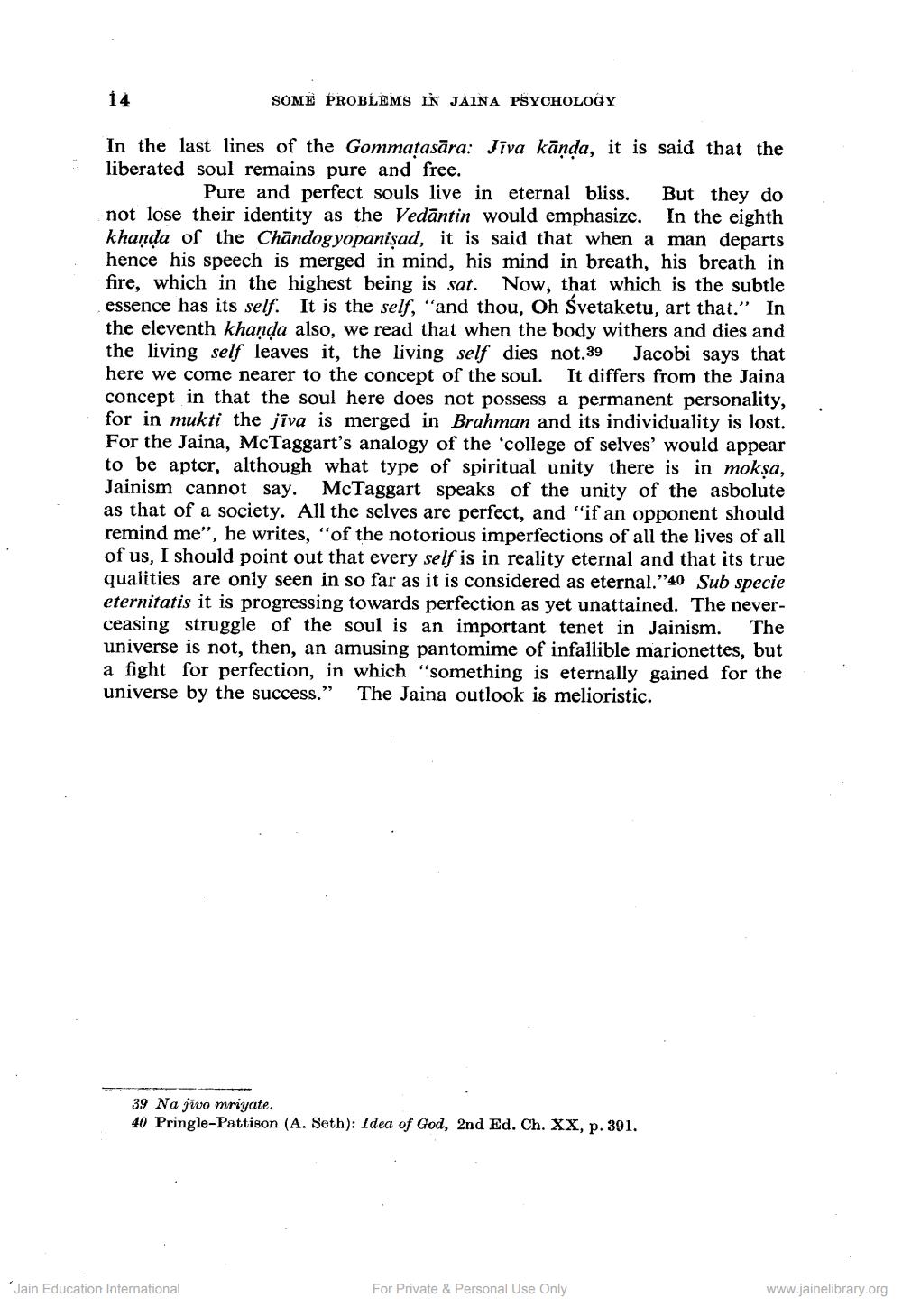________________
14
SOME PROBLEMS IN JAINA PSYCHOLOGY
In the last lines of the Gommatasāra: Jiva kānda, it is said that the liberated soul remains pure and free.
Pure and perfect souls live in eternal bliss. But they do not lose their identity as the Vedāntin would emphasize. In the eighth khanda of the Chāndog yopanişad, it is said that when a man departs hence his speech is merged in mind, his mind in breath, his breath in fire, which in the highest being is sat. Now, that which is the subtle essence has its self. It is the self, "and thou, Oh Svetaketu, art that." In the eleventh khanda also, we read that when the body withers and dies and the living self leaves it, the living self dies not.39 Jacobi says that here we come nearer to the concept of the soul. It differs from the Jaina concept in that the soul here does not possess a permanent personality, for in mukti the jīva is merged in Brahman and its individuality is lost. For the Jaina, McTaggart's analogy of the 'college of selves' would appear to be apter, although what type of spiritual unity there is in mokşa, Jainism cannot say. McTaggart speaks of the unity of the asbolute as that of a society. All the selves are perfect, and "if an opponent should remind me", he writes, “of the notorious imperfections of all the lives of all of us, I should point out that every self is in reality eternal and that its true qualities are only seen in so far as it is considered as eternal.”40 Sub specie eternitatis it is progressing towards perfection as yet unattained. The neverceasing struggle of the soul is an important tenet in Jainism. The universe is not, then, an amusing pantomime of infallible marionettes, but a fight for perfection, in which "something is eternally gained for the universe by the success." The Jaina outlook is melioristic.
39 Na jivo mriyate. 40 Pringle-Pattison (A. Seth): Idea of God, 2nd Ed. Ch. XX, p. 391.
Jain Education International
For Private & Personal Use Only
www.jainelibrary.org




